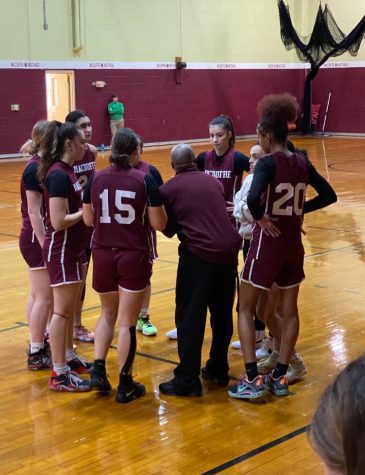How to Make the Most of Your Final Exams
May 29, 2018
Final exams seem to have a negative connotation for students across the globe. For many, simply hearing the term conjures up the image (or memory) of frantically cramming until the early hours of the morning and feeling incredibly overwhelmed. However, this doesn’t have to be the case. Through utilizing effective studying techniques, students can use their upcoming exams to their advantage and increase their overall semester grades—without having to pull an all-nighter.
Perhaps the most important detail for students to know before their studying even begins is the date of each exam, and the first round of final exams at MacDuffie takes place on Monday, June 4. It consists of History exams in the morning session and Science exams in the afternoon session. On the next day, Foreign Language tests are in the morning and English or ELL tests are in the afternoon. The last exams are the following day. Students are scheduled to take Mathematics exams first, followed by “Specials” exams, tests for students with schedule conflicts (typically those “doubling up” in classes of one subject). The location for all of the exams is MacDuffie’s gymnasium.
Students are expected to arrive promptly to their morning and afternoon exams, which begin at 8:15 a.m. and 12:45 p.m, respectively. Each exam is expected to take students no longer than two hours to complete, but a maximum time of two and a half hours is allotted. However, students have the ability to exit the gymnasium 90 minutes after the exams are administered upon finishing early.
In terms of effectively studying for the cumulative tests—which are worth 20% of students’ second semester grade—Head of Upper School and Academic Dean David Ruiz suggested using a trio of strategies. He first recommended that before the serious studying begins, individuals taking exams “take good notes” and “stay fully engaged in class” throughout the semester. Ruiz’s next advice was to “work collaboratively with your classmates.” Finally, Ruiz said that students should “make sure [to] stay healthy” during exam preparation, including getting an adequate amount of sleep at night, practicing healthy eating habits, and fitting in plenty of exercise into their schedules.
Another MacDuffie faculty member that offered insight into exam preparation was Music Teacher Asia Meirovich, who felt that although listening to music while studying can help with focus, the effectiveness of this tactic depends on the individual as well as the type of music being listened to. As a general rule of thumb for those who find music to be helpful, Meirovich discouraged listening to music with “singing” or “anything that has words.”
When listening to songs with lyrics, Meirovich explained that “your brain…has to divide its focus between listening to the words or trying really hard to tune out the words in order to pay attention, so your brain is actually working too hard to either tune it out or not focusing as well.” For similar reasons, she recommended that students select music that is of a medium or slow tempo and comprised of a single instrument. Instrumentals of a fast pace, she noted, may create nervous feelings that result in your brain, again, “working really hard to try to tune it out.” Orchestral music with many instruments creates a similar effect, requiring the brain to process “too much information” at once.
Despite the fact that many popular songs do not fit this criteria, Meirovich stressed that students should select a genre or instrument that they genuinely enjoy, listing many instrumental options that are not exclusive to one genre; potential options range from classical piano to instrumental hip hop, and everything in between. Meirovich even mentioned numerous nonmusical options that can still serve as noises to direct one’s focus, noting that bird sounds, waves, and white noise are particularly helpful for focus.
No matter how you choose to study for your upcoming exams, in the advice from Meirovich and Ruiz it’s clear that in order to be the most successful, students should develop a personalized study plan that utilizes the best ways in which they can comprehend material and remain on task. But amidst the craziness of studying during the next two weeks, it is important to stop, take a deep breath, and reassure yourself that all of your hard work and dedication throughout the semester will ultimately pay off.






